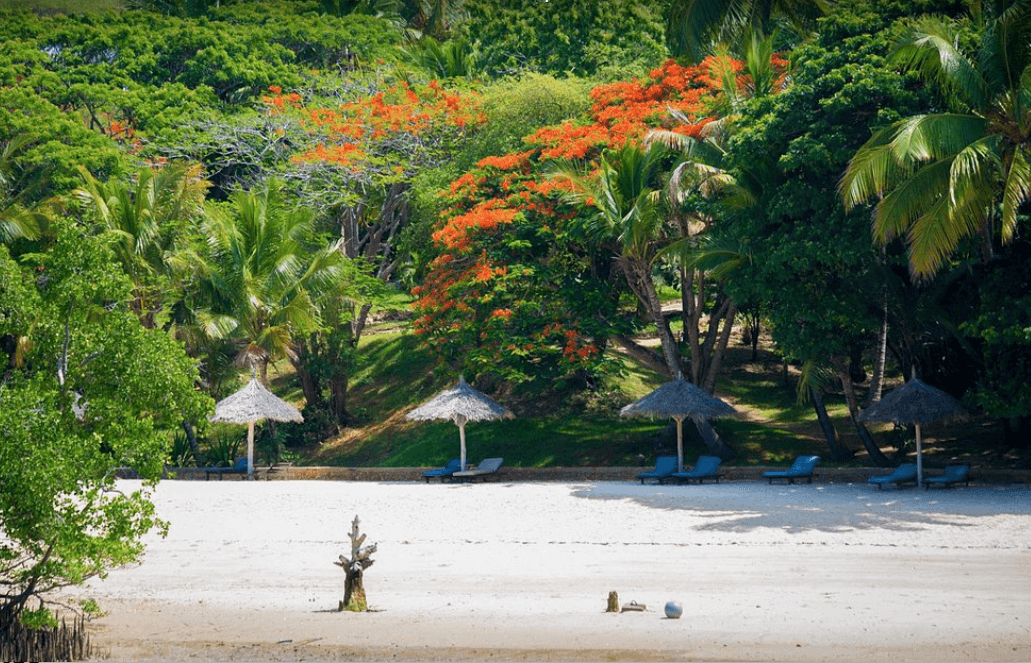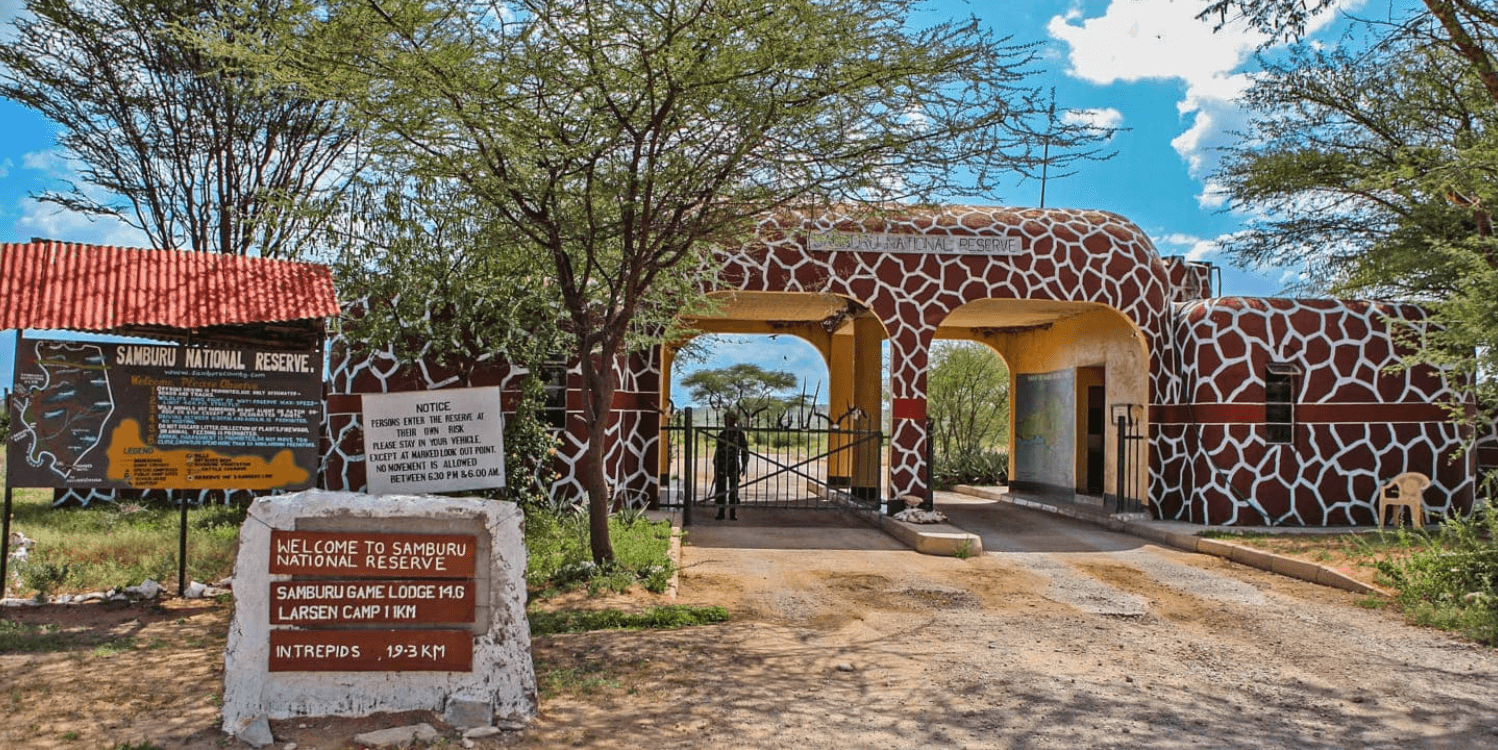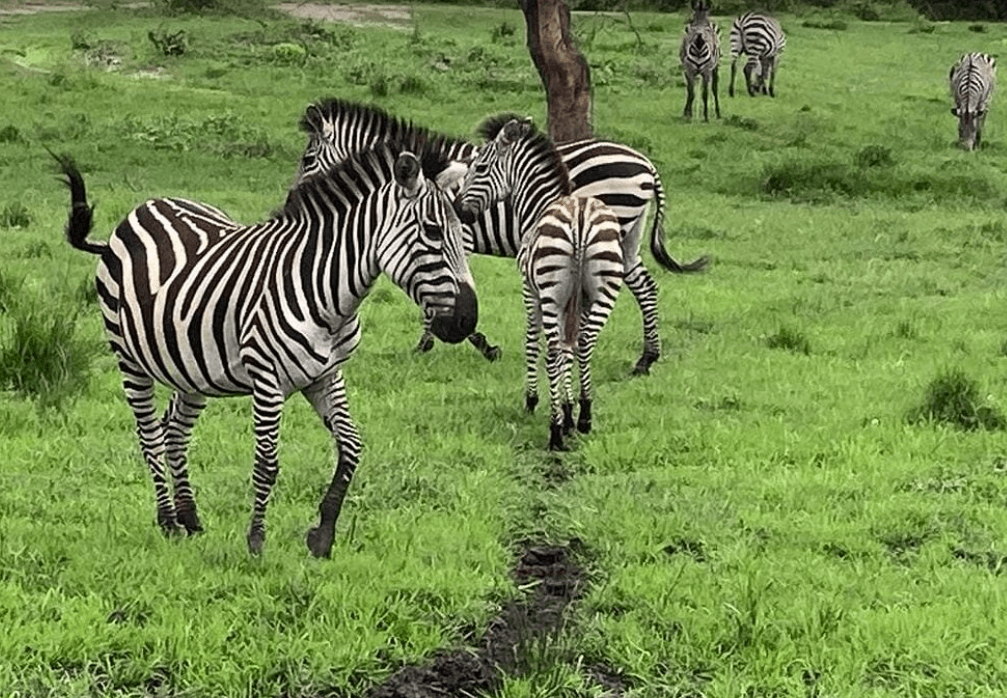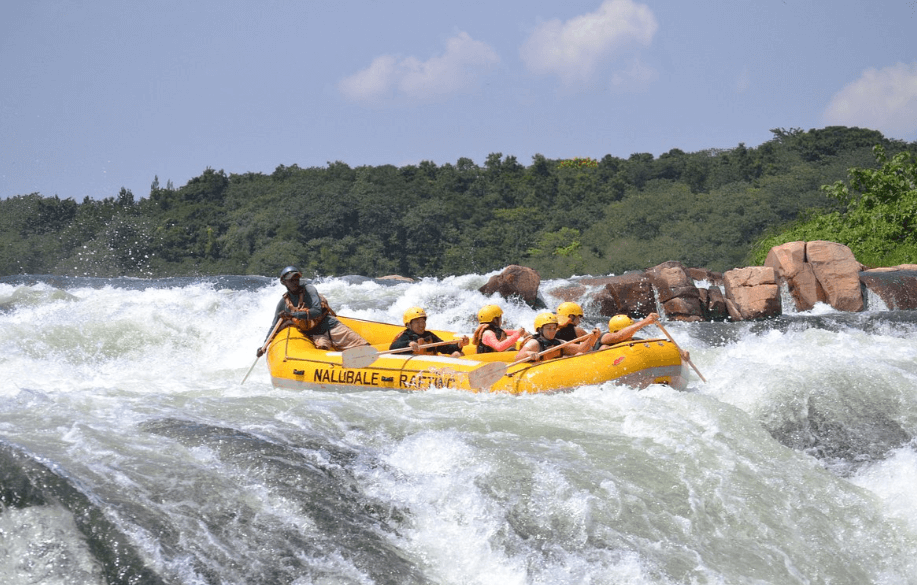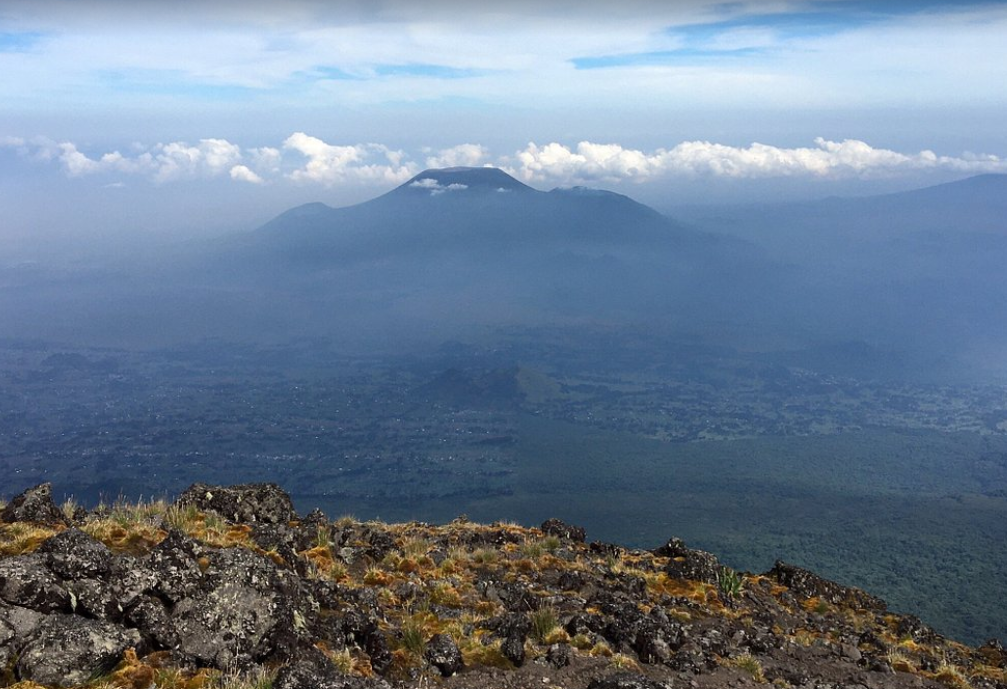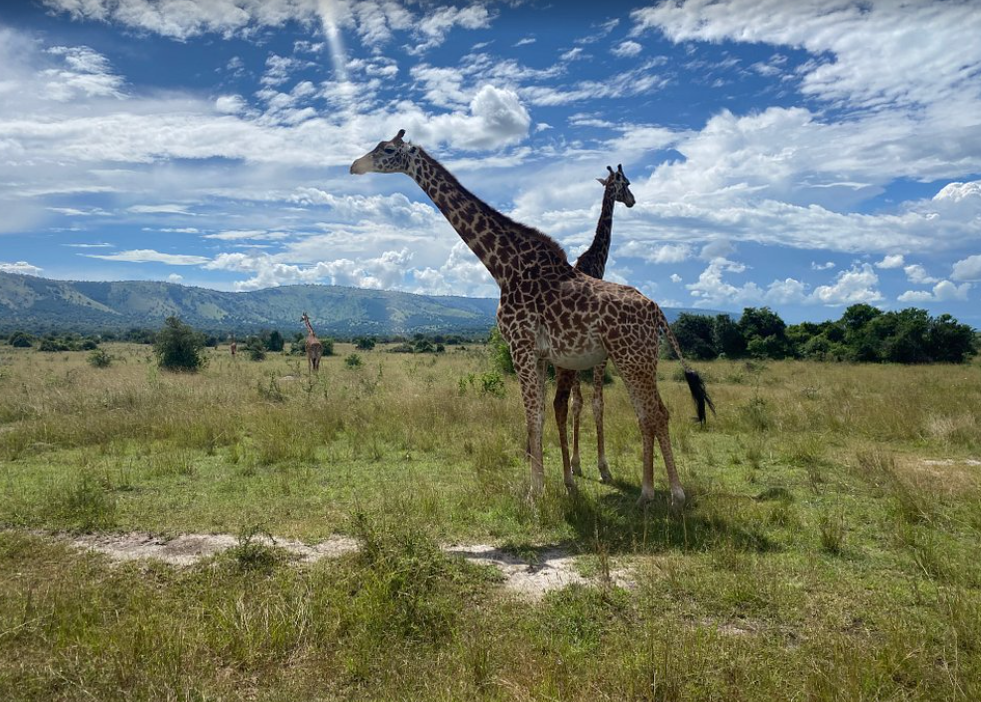Lake Kivu, Rwanda
Lake Kivu, one of Africa’s Great Lakes, is located on the border between Rwanda and the Democratic Republic of Congo. Known for its stunning scenery and tranquil waters, the lake covers an area of approximately 2,700 square kilometers. It offers a serene retreat with its beautiful beaches, picturesque islands, and vibrant surrounding towns. Lake Kivu is not only a perfect destination for relaxation but also for various recreational activities. This guide will provide detailed information on the lake’s location, how to get there, available activities, accommodation options, and frequently asked questions.
Location
Lake Kivu is situated in the Albertine Rift, the western branch of the East African Rift, which forms part of the border between Rwanda and the Democratic Republic of Congo. The lake lies at an elevation of about 1,460 meters above sea level and has a maximum depth of 475 meters. The Rwandan towns of Gisenyi, Kibuye, and Cyangugu (also known as Rusizi) lie along the lake’s shores, each offering unique attractions and amenities.
How to Get There
By Air
The nearest international airport to Lake Kivu is Kigali International Airport (KGL), located in Rwanda’s capital, Kigali. The airport serves flights from major African cities as well as from Europe and the Middle East. From Kigali, you can reach the lake by road, with the journey taking approximately 3 to 4 hours depending on your destination along the lake.
By Road
From Kigali, you can drive to the lake, with the journey typically taking around 3 to 4 hours, depending on your final destination. The roads leading to the towns of Gisenyi, Kibuye, and Cyangugu are well-paved and offer scenic views of Rwanda’s hilly countryside. You have several transport options available, including:
- Private Car Hire: Many tour operators offer private car hire services with experienced drivers. This option is convenient and comfortable, especially for groups or families.
- Public Transport: Public buses and shared taxis operate between Kigali and the lake’s surrounding towns. This more economical option may take longer due to frequent stops.
- Tour Packages: Many tour operators provide all-inclusive packages that include transportation to and from the lake. This hassle-free option is ideal for those who prefer a guided experience.
Activities at Lake Kivu
Swimming and Sunbathing
The lake’s clear and warm waters make it an ideal spot for swimming. The beaches, particularly around Gisenyi and Kibuye, offer perfect places to relax and sunbathe. The lake is free of hippos and crocodiles, making it safe for swimming.
Boat Tours and Excursions
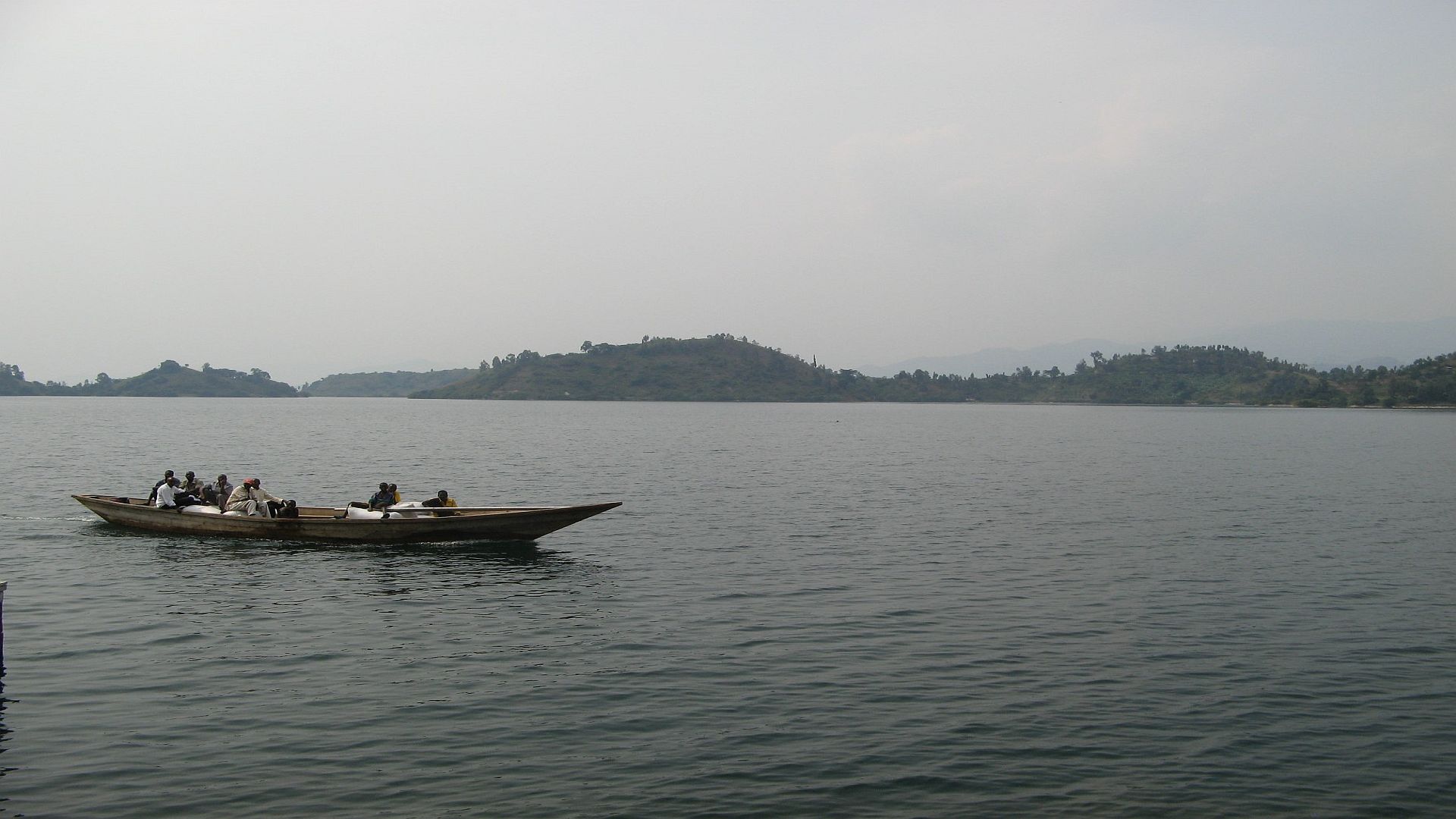
You can explore the lake and its many islands by taking a boat tour. These tours offer an opportunity to enjoy the beautiful scenery and visit some of the islands, such as Napoleon Island, known for its fruit bats, and Amahoro Island, a peaceful retreat. Boat tours can be arranged through local operators and hotels.
Water Sports
For those seeking adventure, the lake offers various water sports, including kayaking, canoeing, and jet skiing. Equipment rentals and guided tours are available in Gisenyi and Kibuye, providing an exhilarating way to explore the lake’s waters.
Fishing
Fishing is a popular activity on the lake. You can join local fishermen for a traditional fishing experience or try your hand at sport fishing. The lake is home to several fish species, including tilapia and the tanganyika sardine, locally known as sambaza.
Hiking and Nature Walks
The areas surrounding the lake offer numerous trails for hiking and nature walks. You can explore the scenic hills and valleys, enjoy breathtaking views of the lake, and discover the rich flora and fauna. Popular hikes include the Congo Nile Trail, which stretches from Rubavu (Gisenyi) to Rusizi (Cyangugu) and offers a multi-day trekking experience.
Coffee and Tea Tours
The regions around the lake are known for their coffee and tea plantations. You can visit these plantations to learn about the cultivation and processing of coffee and tea, taste freshly brewed beverages, and buy local products. These tours provide insight into Rwanda’s agricultural practices and the importance of these crops to the local economy.
Cultural Experiences
The lake’s surrounding towns and villages offer rich cultural experiences. You can visit local markets, interact with the friendly residents, and experience traditional Rwandan music, dance, and crafts. Cultural tours provide a deeper understanding of the region’s heritage and way of life.
Accommodations
Lake Kivu offers a range of accommodation options to suit different budgets and preferences. Here are some of the notable lodges and hotels:
Luxury Lodges
- Lake Kivu Serena Hotel: Located in Gisenyi, this luxury hotel offers comfortable rooms with stunning views of the lake. The hotel features a private beach, swimming pool, spa, and fine dining options.
- Cormoran Lodge: Situated in Kibuye, this lodge offers luxury wooden cabins with panoramic views of the lake. The lodge provides excellent amenities, including a restaurant and bar, and organizes various activities for guests.
Mid-Range Lodges
- Paradise Malahide: This mid-range lodge in Gisenyi offers comfortable accommodation with beautiful lake views. The lodge features a restaurant, bar, and easy access to the beach.
- Rwiza Village: Located in Kibuye, this lodge offers rustic yet comfortable cabins overlooking the lake. The lodge provides a restaurant and organizes boat tours and other activities.
Budget Accommodations
- Inzu Lodge: This budget-friendly lodge in Gisenyi offers basic but comfortable accommodation in a beautiful setting. The lodge features a restaurant and bar, and is within walking distance to the beach.
- Home Saint Jean: Located in Kibuye, this guesthouse offers affordable rooms with stunning lake views. The guesthouse provides a restaurant, bar, and various activities for guests.
Lake Kivu is a stunning destination that offers a perfect blend of relaxation and adventure. Whether you are seeking a peaceful retreat by the water, exploring vibrant local culture, or engaging in exciting water sports, the lake has something for everyone. Plan your visit today and experience the beauty and tranquility of Lake Kivu, Rwanda.
Frequently Asked Questions
What is the best time to visit Lake Kivu?
The best time to visit Lake Kivu is during the dry seasons, from June to September and December to February. During these periods, the weather is more favorable for outdoor activities and exploring the lake. However, the lake can be visited year-round, and each season offers its own unique experiences.
How much does a boat tour cost?
Boat tour prices vary depending on the duration and destination. On average, a one-hour boat tour costs around $20 to $30 per person. Longer tours and private charters may cost more. It is advisable to book tours through reputable operators or your accommodation.
What should I bring for a visit to Lake Kivu?
For a visit to Lake Kivu, you should bring the following items:
- Swimwear and beach towels
- Comfortable clothing and footwear
- A hat and sunglasses
- Sunscreen and insect repellent
- A camera with extra batteries
- Binoculars for bird watching
- Snacks and water
Are there any health precautions to take when visiting Lake Kivu?
It is recommended to take standard health precautions when visiting the lake. Make sure to drink bottled or boiled water, use sunscreen and insect repellent, and follow any health advisories from local authorities. Additionally, it is advisable to have travel insurance that covers health and medical emergencies.
Is it safe to visit Lake Kivu?
Yes, the lake is considered safe for visitors. The Rwandan government and local authorities have implemented strict security measures to ensure the safety of tourists. However, it is always advisable to stay informed about current conditions and follow local guidelines.
Can I combine a visit to Lake Kivu with other destinations in Rwanda?
Absolutely! Rwanda offers a variety of attractions that you can combine with a visit to the lake. Popular destinations include Volcanoes National Park for gorilla trekking, Nyungwe Forest National Park for chimpanzee tracking, and Akagera National Park for a classic safari experience.
How can I support conservation efforts at Lake Kivu?
By visiting Lake Kivu, you contribute to conservation efforts, as tourism revenue is a significant source of funding for the region. Additionally, you can support local conservation organizations, participate in community-based tourism initiatives, and spread awareness about the importance of protecting the lake’s ecosystem and surrounding environment.

